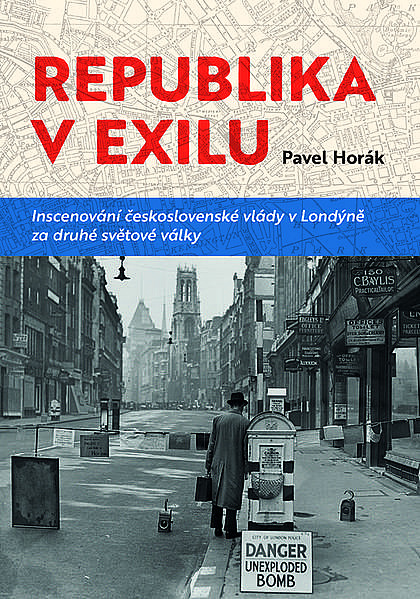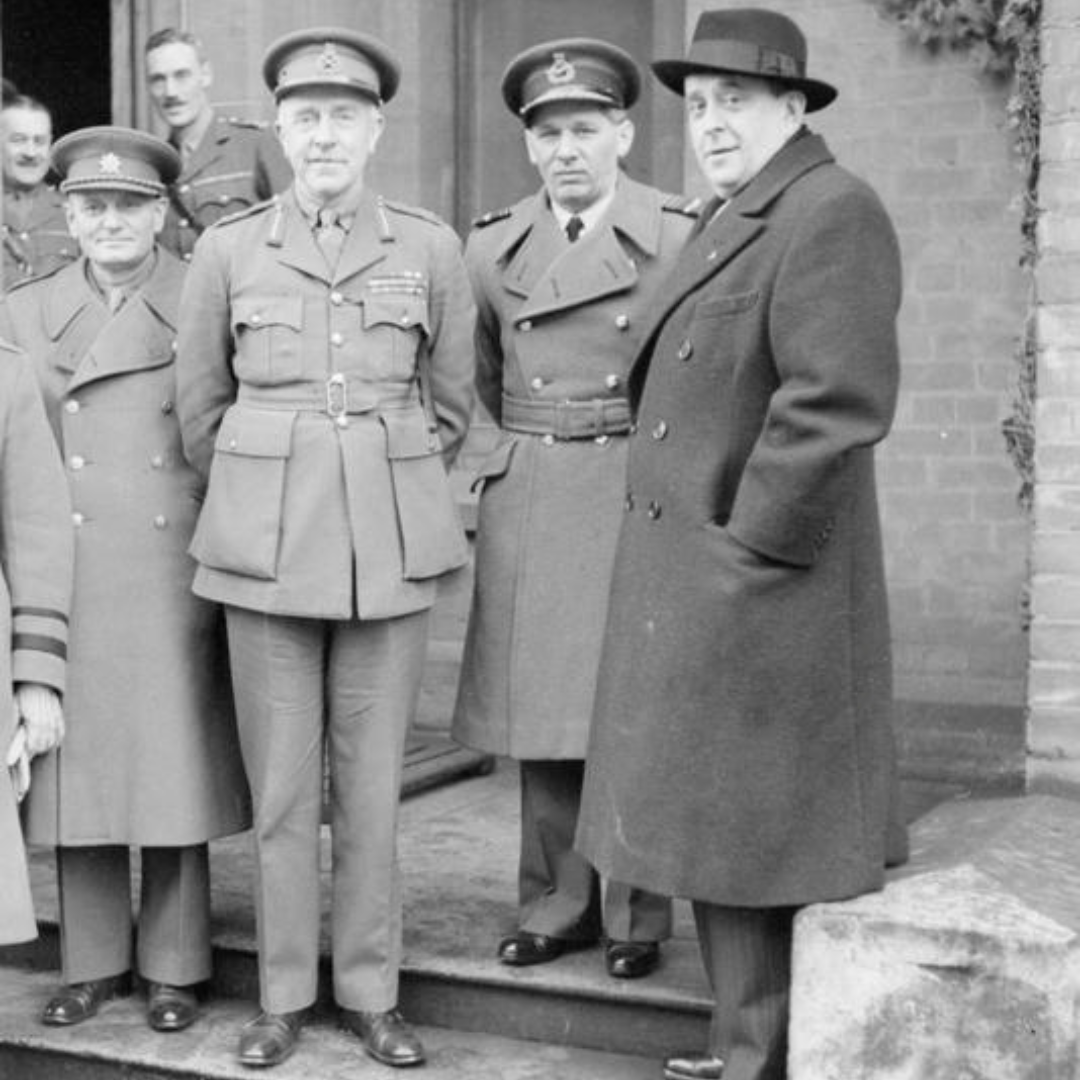The Czechoslovak government-in-exile as performance

Published by: Nakladatelství lidové noviny

In 1956, sociologist Erving Goffman introduced the metaphor of theatre to analyze social interactions in The Presentation of Self in Everyday Life. Dramaturgical analysis subsequently became one of the most important sociological perspectives of the twentieth century. Goffman suggested that people are all cynical actors who practice impression management in the pursuit of personal gains. Interestingly, he spent a lot of time later in his career trying to smooth out the sharp edges of his eminent work. His research on trust in everyday encounters led him to deemphasize the stress on cynicism and he even admitted that using the theatrical metaphor when analyzing certain face-to-face interactions is absurd. Unlike actors, individuals simply cannot stop playing the roles of parents, friends, or employees. Hence, their social behavior cannot be explained mainly by dramaturgical analysis.
Nonetheless, Goffman’s imaginative approach became extremely popular as, despite its flaws, it can shed new light on systems we know intimately and trigger innovative debates. Phil Manning suggested that the “exhilaration felt when reading The Presentation of Self in Everyday Life is produced by our realization that in some form, we already knew everything Goffman suggests in this book.”1 This certainly feels plausible in the case of historians who adopt Goffman’s approach. The metaphor of theater performance was most famously used by the early modern historian Peter Burke, whose book The Fabrication of Louis XIV focused on the relationship between art and power at the court of the Sun King. While in 1992, fellow historians praised Burke’s superb work with art representations, they also criticized its limited interpretation.
Three decades later Czech historian Pavel Horák seems to have encountered the same problem as Burke. In his new study, Republika v exilu: Inscenování československé vlády v Londýně za druhé světové války, he puts the “old topic” of Czechoslovak government-in-exile into the new attractive coat of theater metaphor. The new perspective is approachable for a wide audience and draws attention to some fascinating details of the long-past exile setting. Yet at the same time, Horák does not offer any new interpretations.
Horák avoids what would seem a logical conclusion: that exile performance was a great success. It achieved the major diplomatic goals: the Munich Agreement was renounced, and the Allies agreed to the expulsion of the German minority after the war. On top of that, their hosts became good friends.
The book is structured into four parts. The opening Script captures how Edvard Beneš rewrote the Munich Agreement from a national catastrophe to a paradoxical victory that secured Czechoslovakia’s future reconstitution. The discursive twist suggests how much work lay ahead of the exiles after they arrived in Britain. The two following parts, Ensemble and Scene, focus on the background to the exile’s “performance.” Horák reconstructs the daily experience of ministers as well as rank-and-file officers. Comparative analysis shows that the Czechoslovak government was in terms of both its size and budget comparable to other London-based exile governments. Despite most officers’ poor knowledge of English and the chaotic protocol, Horák describes the exile’s performance as airtight and the Czechoslovak brand as unmistakable (p. 133). In the last part, Performance, he utilizes the Mass Observation Polls, which confirm the unexpectedly high level of Czechoslovaks’ popularity among Britons. Unfortunately, a promising source seems underused in the end. Horák avoids what would seem a logical conclusion: that exile performance was a great success. It achieved the major diplomatic goals: the Munich Agreement was renounced, and the Allies agreed to the expulsion of the German minority after the war. On top of that, their hosts became good friends. Why, however, are we not offered such an ending?
The answer is quite simple. Horák built his study on a handy connection between Goffman’s dramatization analysis and Jan Tesař’s description of the Czech nation as exceptionally “phony” and impotent due to its tendency to theatricalize public life (p. 161). Hence, any conclusion which would portray the exiles as positive figures is already prohibited by the adoption of Goffman’s critical approach and Tesař’s condemnatory interpretation of modern Czech history. The possibility to broadly utilize the theatre metaphor suddenly changes from an advantage into a trap. It obstructs consideration of the wider context of the subject and, thus, becomes misleading.
Even though here and there Horák compares the Czechoslovak “performance” with the “performances” of other exile governments, he fails to stress that the stakes for some exiles were objectively higher than for others. Apart from having to prove that they authentically represent the will of their respective nations and that they can significantly contribute to the defeat of Hitler, Czechoslovaks or Poles (unlike, for example, the Dutch and Norwegians) had to lobby for the actual existence of their states. Hence it seems only natural that the Central European elites paid an increased amount of attention to public relations (pp. 136-7). The key question is what is cynical about that and why is pragmatism not used as a complementary interpretative category? Double standards emerge also at the individual level. While Edvard Beneš, with his irritating personality, must “perform” (wearing colorful combinations of ties, shirts, and suits like a “perfectly neat finch”), his foreign Minister Jan Masaryk is great just as he is. Horák suggests that the overly formal reception of Prokop Drtina by Beneš epitomizes the importance of “performance” for Beneš and ultimately for the exile’s strategy. Interestingly, the scene when Masaryk publicly performs a variation of nationalistic themes on a piano is left without comment (pp. 141-2).
In general, Horák never resorts to rash argumentation. His study is well executed and brings to light many fascinating images and details from the exiles’ everyday life that would otherwise be forgotten in private diaries that were published long ago or not at all. What undermines the book, however is, paradoxically, the attractive prism Horák chose. The usage of the theatre metaphor does not seem suitable for historiographical analysis, or at least not as the sole methodological tool. When applied to the operation of Edvard Beneš’ exile government it proves reductive and prone to the simplification of complex realities as well as characters. On the contrary, what the topic of Czechoslovak exile deserves is a transnational perspective and a certain degree of “normalization.” The same is the case about the acts and deeds of Edvard Beneš. The feeling of exceptional smallness is as toxic as the feeling of exceptional greatness.
Johana Kłusek holds a Ph.D. in Modern History from Charles University. Her dissertation focused on the discursive appropriation of Britain by Czech exiles and its impact on the post-war socio-political development of Czechoslovakia. She focuses on the history of mentalities in the East-West perspective.
1 Manning, Phil. “Drama as Life: The Significance of Goffman’s Changing Use of the Theatrical Metaphor.” Sociological Theory 9, no. 1 (1991): 70–86. https://doi.org/10.2307/201874.
